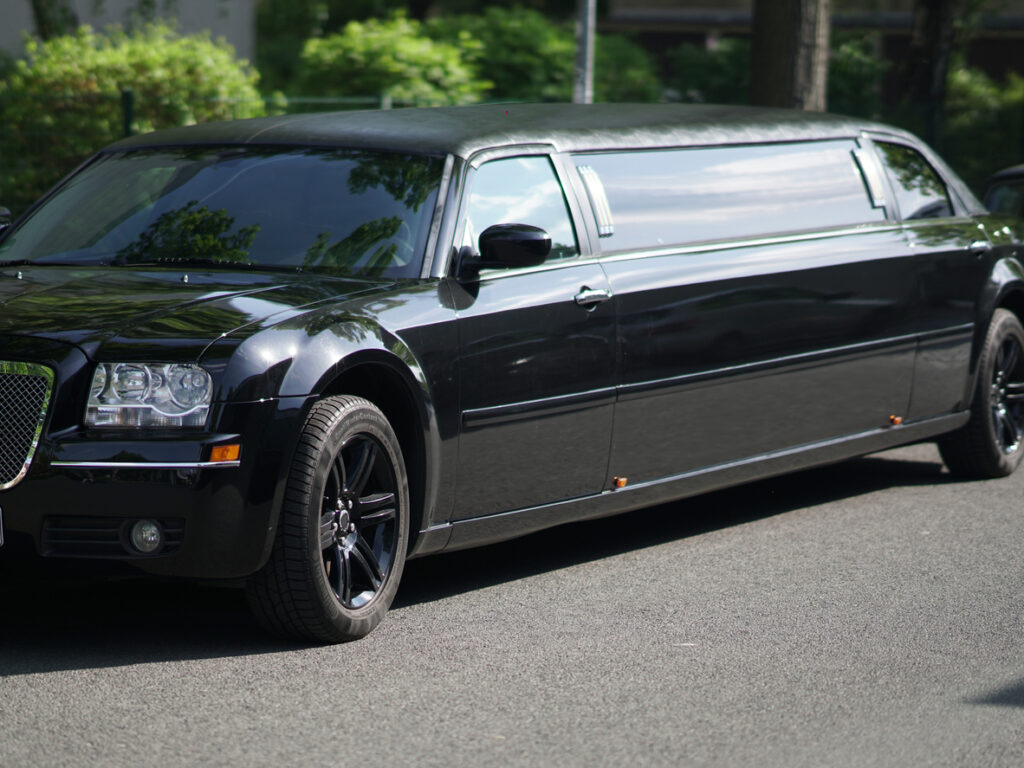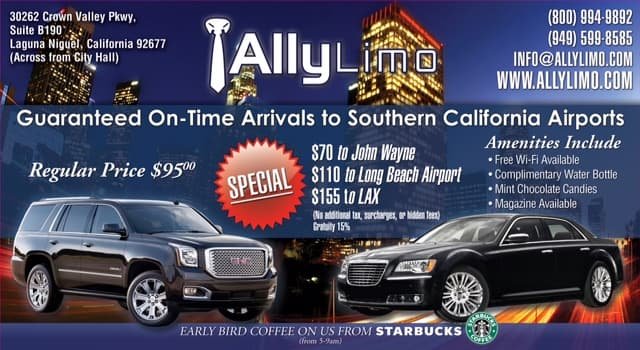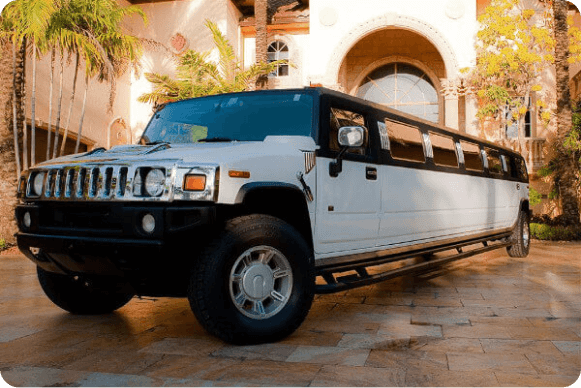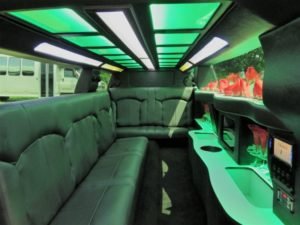Are you aware that driving a limousine may require more than just a regular driver’s license? Obtaining a special license to drive a limousine is crucial in many jurisdictions. The requirements vary depending on the location, but it’s important to have the necessary qualifications and documentation to ensure both your safety and the safety of your passengers.
When it comes to driving a limousine, the regulations can differ significantly from those for traditional vehicles. Generally, a special license is needed due to the unique characteristics of a limousine, such as its size and passenger capacity. Many jurisdictions require drivers to obtain a commercial driver’s license (CDL) with additional endorsements specific to operating a limousine. This may include a passenger endorsement and, in some cases, specialized training certifications. By meeting these requirements, drivers can ensure they are properly qualified to handle the responsibilities that come with driving a limousine and delivering a high level of service to their passengers.
To drive a limousine, you generally need to have a special license, depending on the country and state regulations. In most cases, a regular driver’s license is not enough due to the size and nature of operating a limousine. Typically, a commercial driver’s license (CDL) with a passenger endorsement is required. This ensures that drivers have the necessary skills and knowledge to handle larger vehicles and ensure the safety of their passengers. Additionally, specific requirements may vary, so it is important to check with your local Department of Motor Vehicles for precise licensing requirements in your area.

Do You Need to Have a Special License to Drive a Limousine?
Limousines are often associated with luxury and style, and driving one can be an appealing career choice for many individuals. However, before embarking on a career as a limousine driver, it’s essential to understand the licensing requirements involved. In this article, we will explore whether you need to have a special license to drive a limousine, the different types of licenses available, and the qualifications needed to obtain them. So, if you’ve ever wondered about the specific licensing requirements for driving a limousine, this article is for you.
1. Class D Driver’s License
To drive a regular passenger vehicle, one typically needs a Class D driver’s license. This is the standard license category that permits individuals to operate cars, vans, SUVs, and other non-commercial vehicles used for personal transportation purposes. If you’re interested in driving a limousine that falls under the regular passenger vehicle category and is designed to carry fewer than 16 passengers, you will usually only need a Class D driver’s license.
Obtaining a Class D driver’s license typically involves meeting the minimum age requirement (which may vary between jurisdictions), passing a written knowledge test, a vision test, and a road skills test. Additionally, there may be requirements related to medical examinations, driving record checks, and proof of identity. It’s crucial to check the specific licensing requirements in your jurisdiction, as they can vary.
2. Chauffeur’s License
In some jurisdictions, individuals who wish to work as professional drivers, including limousine drivers, may need to obtain a chauffeur’s license. This license is usually required for driving a vehicle designed to transport passengers for hire, such as limousines. While the requirements for a chauffeur’s license vary by jurisdiction, they typically involve meeting certain age requirements, passing a written knowledge test, a vision test, and a road skills test.
Some jurisdictions may also require individuals to undergo a background check, provide proof of insurance, and attend training programs or classes specific to chauffeur service. It’s important to note that the chauffeur’s license is an additional requirement on top of the regular Class D driver’s license and may be necessary if you plan to work as a limousine driver for a transportation company or as an independent operator.
3. Commercial Driver’s License (CDL)
If you’re interested in driving a limousine that carries more than a certain number of passengers, usually 16 or more, or weighs over a specific threshold, you may require a Commercial Driver’s License (CDL). The CDL is a specialized license that grants individuals the authority to operate commercial vehicles, including certain types of limousines.
The specific CDL requirements vary by jurisdiction, but they generally involve meeting age requirements (minimum age may be higher than for regular driver’s licenses), passing a written knowledge test, a vision test, and a road skills test. In addition, there may be endorsements or additional tests required depending on the type of limousine or commercial vehicle you intend to drive. It’s essential to familiarize yourself with the specific CDL requirements in your jurisdiction if you plan to operate larger or specialized limousines.
4. Other Considerations
Aside from the different license categories mentioned above, there may be additional considerations for driving a limousine. For example, certain jurisdictions may require the driver to obtain a passenger endorsement, which verifies the driver’s ability to transport passengers safely. Additionally, there may be regulations regarding vehicle inspections and maintenance, insurance coverage, and background checks for limousine drivers.
It’s important to research and understand the local regulations and requirements specific to the area in which you plan to work as a limousine driver. Consulting with local transportation authorities or professional driver associations can provide you with valuable information and guidance on the necessary licenses and qualifications needed to drive a limousine legally and safely.
5. Insurance Considerations
When working as a limousine driver, whether for a transportation company or as an independent operator, it’s crucial to have the appropriate insurance coverage. The insurance requirements for limousine drivers may differ from those for personal vehicle drivers. Insurance coverage is necessary to protect yourself, your passengers, and the vehicle in the event of an accident or other unforeseen circumstances.
It’s important to consult with insurance providers who specialize in commercial auto insurance to ensure that you have adequate coverage for your specific needs as a limousine driver. These providers can guide you through the process of obtaining the necessary insurance policies, such as liability insurance, to protect yourself and your passengers while on the road.
6. Training and Professional Development
While obtaining the required licenses is essential, it’s equally important to undergo training and continuous professional development as a limousine driver. Professional driver training programs can enhance your driving skills, teach you best practices for passenger safety and customer service, and provide you with the knowledge and tools needed to excel in your career.
There are various training programs available, including those offered by transportation companies, driver training schools, and online platforms. Participating in these programs can not only improve your driving abilities but also enhance your understanding of the industry, local regulations, and the expectations of clients.
7. Vehicle-Specific Requirements
In addition to the driver’s licensing requirements, it’s important to consider any vehicle-specific requirements when driving a limousine. Different jurisdictions may have regulations regarding the types of vehicles that can be used as limousines, their length and capacity, safety features, and other specifications. Ensuring that your limousine meets these requirements is essential to operate legally and provide a safe and comfortable experience for your passengers.
Additionally, regular maintenance and inspections of the limousine are crucial to uphold safety standards and avoid potential issues while on the road. Following manufacturer guidelines for maintenance, keeping detailed records, and addressing any mechanical or safety concerns promptly are key responsibilities of a limousine driver.
Benefits of Obtaining the Necessary Licenses
1. Expanded Job Opportunities
By obtaining the necessary licenses to drive a limousine, you expand your job opportunities within the transportation industry. Having the appropriate licenses demonstrates your commitment to professionalism and your ability to operate commercial vehicles safely and legally. This can make you a more appealing candidate to transportation companies, chauffeur services, and private individuals seeking a reliable and qualified limousine driver.
2. Higher Earning Potential
Driving a limousine can be a lucrative career choice, especially if you obtain the required licenses and build a reputation for providing exceptional service. With the appropriate licenses, you may be eligible for higher-paying positions or opportunities to work with high-end clients or events. The combination of specialized skills, professionalism, and exceptional customer service can contribute to increased earning potential.
3. Enhanced Safety and Passenger Confidence
Obtaining the necessary licenses and undergoing professional training as a limousine driver can significantly enhance safety and contribute to passenger confidence. By demonstrating your knowledge of driving regulations, best practices, and customer service, you instill trust in your passengers, ensuring they feel secure and comfortable during their journey. Prioritizing safety and providing a positive experience can lead to increased customer satisfaction and potential referrals.
4. Personal and Professional Growth
Obtaining the necessary licenses and investing in professional development as a limousine driver allows for personal and professional growth. By continually improving your skills, updating your knowledge, and staying abreast of industry trends, you can advance in your career and expand your horizons within the transportation industry. Building a successful career as a limousine driver requires a dedication to ongoing learning and self-improvement.
Tips for Becoming a Licensed Limousine Driver
1. Research Local Regulations
Begin by researching the local regulations and licensing requirements for limousine drivers in the area where you plan to work. Each jurisdiction may have specific rules regarding age requirements, examinations, background checks, and training programs. Understanding these requirements from the outset will help you navigate the licensing process more efficiently.
2. Consult with Professionals
Reach out to professionals in the transportation industry, such as transportation authorities, limousine companies, and driver associations. These individuals can provide valuable guidance on the licensing process, training programs, insurance requirements, and vehicle-specific regulations. Their expertise and insights can ensure that you are well-informed and prepared to embark on your journey as a licensed limousine driver.
3. Complete the Necessary Training
Invest in professional driver training programs to enhance your skills and knowledge as a limousine driver. Look for programs that cover topics such as defensive driving, passenger safety, customer service, and local regulations. Completing these training programs demonstrates your commitment to professionalism and safety, enhancing your chances of success in the industry.
4. Maintain a Clean Driving Record
Maintaining a clean driving record is crucial in the transportation industry. Traffic violations, accidents, or other infractions can have a detrimental impact on your ability to obtain and retain your licenses. Practice safe driving habits, stay updated on traffic laws, and prioritize the safety of yourself and your passengers to uphold a clean driving record.
5. Network and Build Relationships
Building a network of professional contacts within the transportation industry can open doors to new opportunities and provide valuable support. Attend industry events, join professional associations, and engage with other drivers and industry professionals. Networking can lead to referrals, job prospects, and the exchange of valuable information and experiences.
The Growing Demand for Licensed Limousine Drivers
As the demand for luxury transportation services continues to grow, so does the need for licensed limousine drivers. From corporate executives to wedding parties and tourists, many individuals and groups prefer the comfort and style of traveling in a limousine. By obtaining the necessary licenses and continuously improving your skills, you position yourself for success in a thriving industry.
According to recent statistics, the limousine services market is expected to experience significant growth in the coming years. Factors such as rising disposable incomes, increased corporate travel, and a growing preference for personalized experiences contribute to the expanding market demand. By meeting the licensing requirements and providing exceptional service, you can tap into this growing demand and establish a rewarding career as a licensed limousine driver.
In conclusion, obtaining the necessary licenses to drive a limousine is essential if you wish to pursue a career in the transportation industry. Depending on the type of limousine and the number of passengers it can carry, you may need a Class D driver’s license, a chauffeur’s license, or a Commercial Driver’s License (CDL). Additionally, it’s important to consider other requirements such as vehicle specifications, insurance coverage, and training programs. By meeting the necessary licensing requirements, you open doors to expanded job opportunities, higher earning potential, enhanced safety, and personal growth. Researching local regulations, consulting with professionals, completing training, maintaining a clean driving record, and building professional relationships are key steps to becoming a licensed limousine driver. So, if you’re considering a career in this field and have a passion for providing exceptional service, start by obtaining the licenses required to legally operate a limousine and embark on a rewarding journey as a licensed limousine driver.”
Key Takeaways: Do You Need to Have a Special License to Drive a Limousine?
- Driving a limousine typically requires a special license, depending on the jurisdiction.
- Some states require a commercial driver’s license (CDL) with a passenger endorsement to drive a limousine.
- Other states may have specific requirements, such as a chauffeur’s license or certification.
- The specific license needed may also depend on the size and purpose of the limousine.
- It is important to research and understand the licensing requirements in your area before driving a limousine.
Frequently Asked Questions
Do you need a special license to drive a limousine? Find answers to common questions below.
1. What type of driver’s license do you need to drive a limousine?
To drive a limousine, you typically need a commercial driver’s license (CDL) with a passenger endorsement. This endorsement is required because a limousine is considered a passenger-carrying vehicle. The specific requirements may vary depending on your state or country, so it’s important to check with your local Department of Motor Vehicles (DMV) or equivalent authority for the exact requirements and regulations.
Obtaining a CDL with a passenger endorsement usually involves passing both a written and practical skills test. The written test covers topics such as passenger safety, vehicle operation, and traffic laws. The practical skills test assesses your ability to safely operate a passenger vehicle, including proper loading and unloading of passengers and managing various driving situations.
2. Can you drive a limousine with a regular driver’s license?
In most cases, you cannot drive a limousine with a regular driver’s license. As mentioned earlier, a commercial driver’s license (CDL) with a passenger endorsement is typically required to operate a limousine. This is because a limousine is considered a commercial vehicle and falls under different licensing requirements than a regular passenger car.
While requirements may differ depending on your location, it’s crucial to comply with the necessary licensing regulations. Unlicensed operation of a limousine can result in penalties, fines, or even the suspension of your driving privileges. To ensure you are driving legally and safely, contact your local DMV or equivalent authority to understand the specific requirements for driving a limousine in your area.
3. Are there any age restrictions for driving a limousine?
Age restrictions for driving a limousine may vary depending on your location and the specific type of vehicle. In many places, the minimum age requirement for a commercial driver’s license (CDL) with a passenger endorsement is 21 years old. However, some states or countries may have different age requirements.
It’s important to note that even if you meet the age requirement, you may still need to fulfill other criteria, such as having a clean driving record and passing the necessary tests. To determine the age restrictions and other requirements for driving a limousine, contact your local DMV or equivalent authority for accurate and up-to-date information.
4. Do you need any special training to drive a limousine?
While specific training requirements may vary depending on your location, it’s generally recommended to undergo professional training to drive a limousine. This training can provide you with the necessary knowledge and skills to safely operate a larger passenger vehicle and handle the unique challenges that may arise.
Training programs for limousine drivers often cover topics such as defensive driving techniques, vehicle operation and maintenance, passenger safety, and customer service. Some programs may also include practical driving sessions to practice handling a limousine in different situations.
5. Can you use a regular car insurance policy to drive a limousine?
No, a regular car insurance policy is typically not sufficient to cover a limousine. Since a limousine is considered a commercial vehicle, it requires a specialized insurance policy designed for commercial use. This type of insurance is specifically tailored to cover the unique risks associated with operating a limousine and protecting both the vehicle and passengers.
When obtaining insurance for a limousine, it’s important to work with an insurance provider that specializes in commercial vehicle coverage. They can help you select the appropriate policy that meets your specific needs and complies with the regulations in your area. Failure to have the proper insurance can result in legal consequences and financial liabilities in the event of an accident or damage to the vehicle.
To drive a limousine, you typically need a special license called a commercial driver’s license (CDL). This license is required because limousines are considered commercial vehicles. To get a CDL, you must meet certain age and health requirements, pass written and practical exams, and possibly complete additional training. It’s important to check the specific licensing requirements in your state or country, as they may vary.
Obtaining a special license to drive a limousine ensures that drivers are properly trained and qualified to operate these larger, luxury vehicles. So, if you dream of driving a limousine, make sure to look into the licensing requirements in your area to get started on the path to becoming a professional limousine driver.






